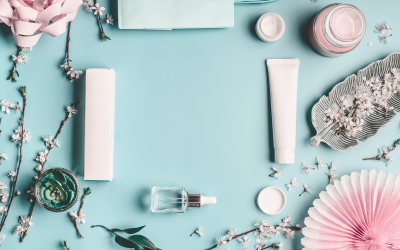What Is Scalp Eczema?
Do you have dry, itchy skin? If you’re crying a resounding, yes, you may have eczema, but let me rephrase my question. Do you have dry, itchy skin on your scalp? If you do, you might be dealing with scalp eczema.
While many might be familiar with regular eczema that affects the body, there are a large number of people who are dealing with the condition on their scalp. From what it is to what causes it, let’s talk about scalp eczema.
What is it? Scalp eczema is a form of eczema that manifests itself on the scalp. Similar to the appearance of eczema on the body, it is characterized by dry, itchy, and irritated skin. To put it into a larger, more recognized perspective, the flakes caused by scalp eczema is what is commonly referred to as dandruff. If you think about all the people you might see with dandruff, this is the most common symptom of scalp eczema.
Who gets it? The cause of eczema isn’t 100% known, so it’s impossible to track who will get it. For now, there are just a series of factors that doctors believe can cause eczema. It is believed that some might get eczema due to a combination of genetics, the environment, or immune system malfunctions.
What can you do about it? If you think you have scalp eczema, this isn’t something you should just self-diagnose yourself with and then begin personal treatment. Any form of eczema is something that you should have diagnosed by a dermatologist. In the case of scalp eczema, they’ll most likely supply you with topical treatments as well as specific shampoo and conditioners to help the area heal.
What can you do at home? When you are dealing with any skin condition, there are definitely parameters that you’d have to handle at home. After all, the doctor can’t be with you 24/7! There are a few skincare tips that you can follow.
First, switch your pillows often. If you have eczema in general, changing your pillows and sheets regularly is key. Any dust or bacteria sitting on your pillow could further irritate your skin.
Second, stop taking hot showers. When it comes to protecting your skin, hot showers are the worst. Hot showers already irritate the skin so you can imagine how much damage they can do when your skin or scalp is already irritated.
If you’re someone who’s been dealing with dandruff, you probably didn’t even know that you might have scalp eczema. Don’t just self-diagnose yourself and then treat yourself! If the symptoms sound like something you’re dealing with, schedule an appointment with your dermatologist so you can create a game plan for how to kick scalp eczema to the curb!
5 Short Skincare Routines to Do While Doing Chores
It's the season to… Multitask! While your holiday comes to a close, you can squeeze in some much-needed skincare while...
Makeup and Skincare DIY to Make You Look Younger
Parties and family gatherings and photos galore – which has some of us running for the hills – or at least the beauty...
The Cult Craze of Hemp Infused Products
You’ve surely heard it from all over: hemp this, CBD that – suddenly, cannabis and hemp infuse products have become...



